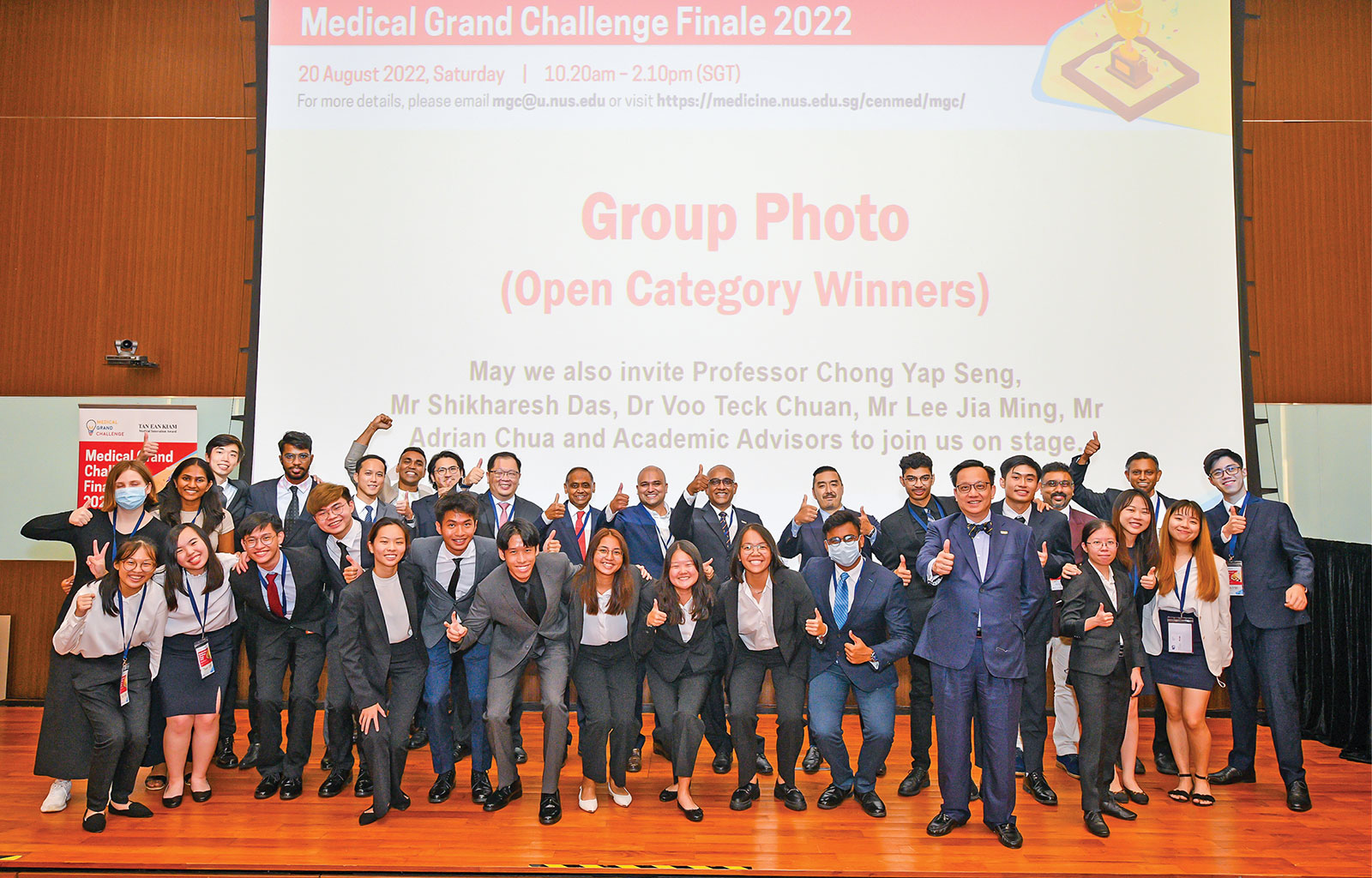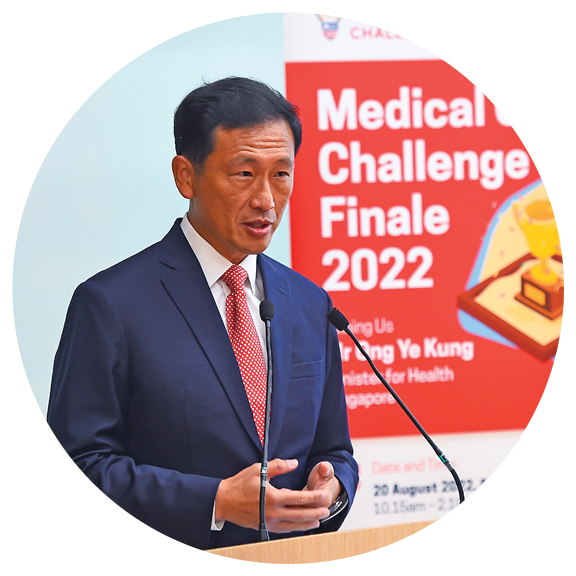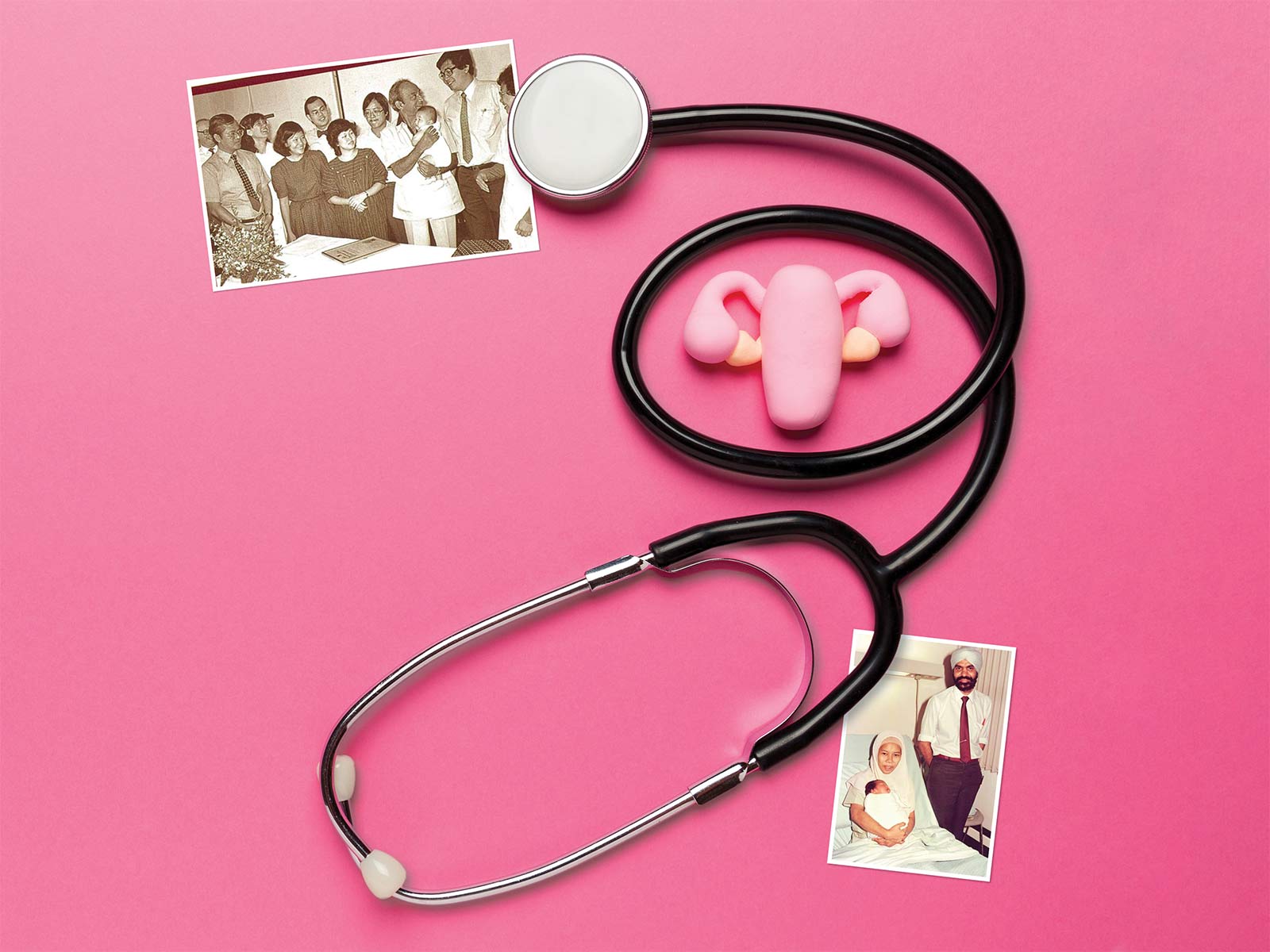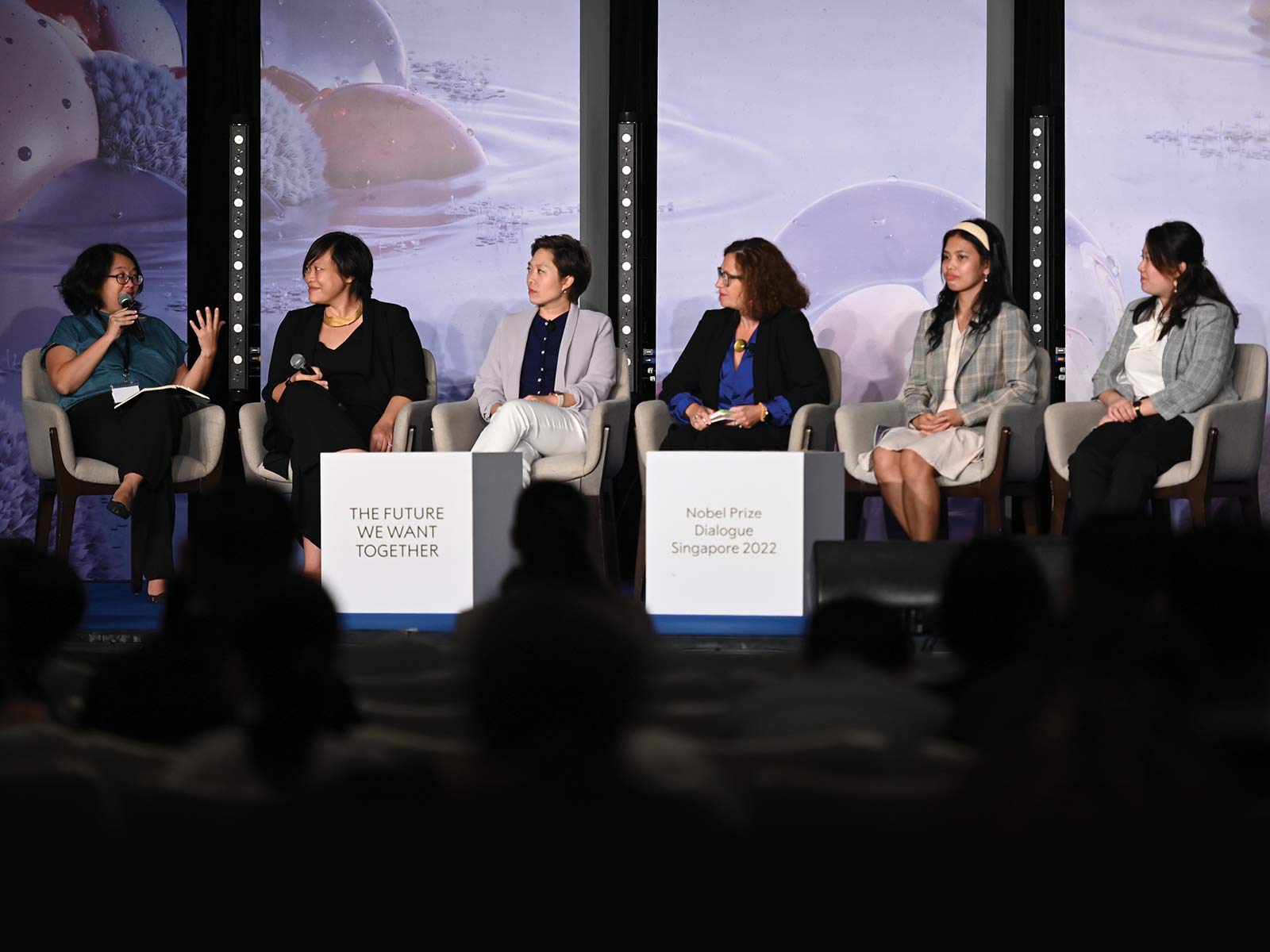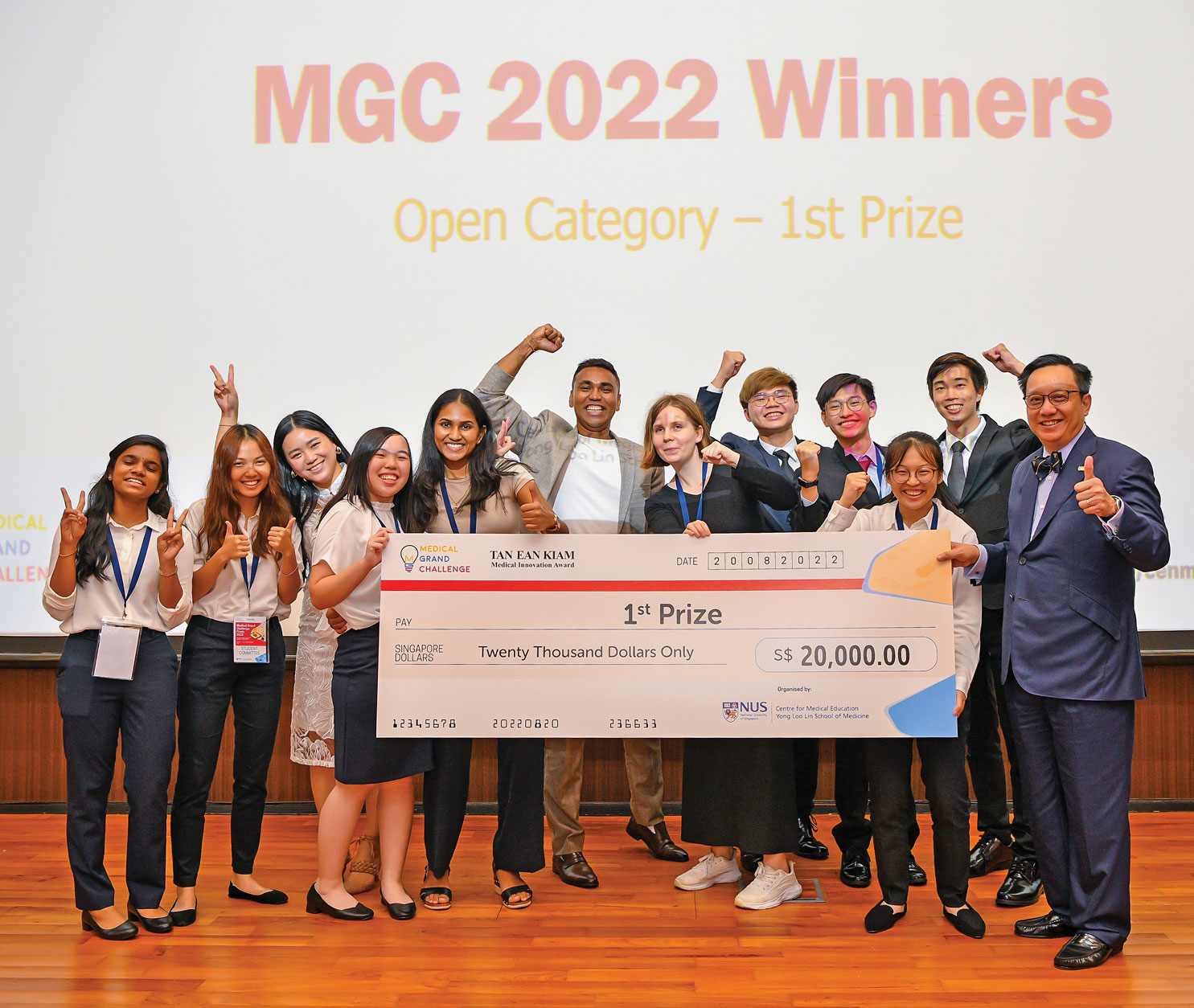
Team STDetect, who won the top award in the Open category.
This year, the Finale was attended by Guest-of-Honour, Mr Ong Ye Kung, Minister of Health. This final stage of a year-long challenge, was a platform that showcased the burning passion and creativity of the teams. The shortlisted teams presented their projects to a panel of judges, many of whom are influential business leaders in commercial healthcare. Projects were assessed on their business strategy, creativity, design quality and healthcare impact.
The pitching session was undoubtedly intense, as the teams put up impressive presentations. Team Kiddx bagged the top prize in the Nascent category with their video monitoring and analysis software for real-time monitoring and detection of early signs of Autism Spectrum Disorder (ASD) in the home setting.
In the Open category, Team STDetect swept the top award with a vending machine that facilitates access to Sexually Transmitted Disease (STD) testing kits, along with a mobile application for users to register their test kits and receive their testing results anonymously.
All the inventions were inspiring, as shown through the other awards that were presented at the Finale. They included the People’s Choice Award for Fisoguide, an AI-powered tele-physiotherapy based treatment application for people with Musculoskeletal Disorders (MSD), the Sustainability Award for BiliMonitor, a consumer-grade jaundice meter device for home use, and the Social Responsibility Award for AI-powered eye screening for the detection of glaucoma.


